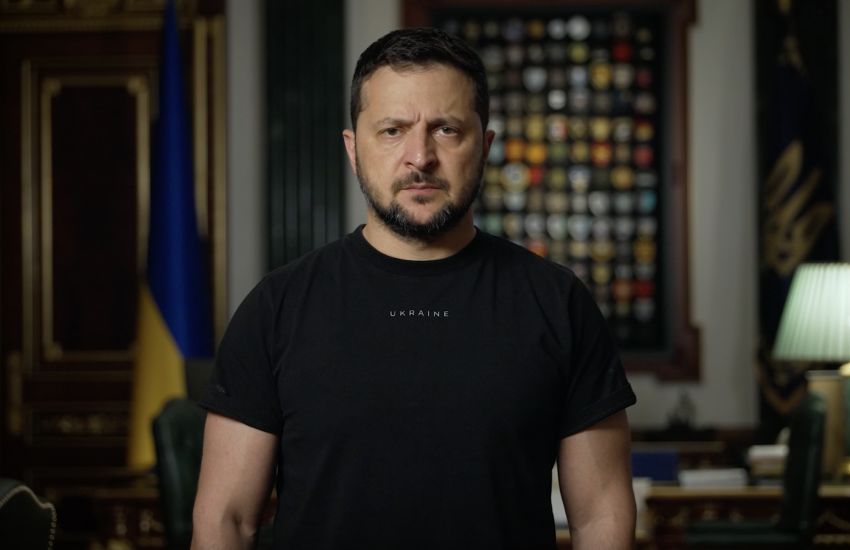Zelensky on the grain conflict with neighboring countries: “We are gradually removing emotions on most issues”

President Volodymyr Zelenskyy says that Ukraine is now doing everything to ensure that the conflict with neighboring EU member states over the export of Ukrainian grain to them is resolved in a constructive manner.
He said this in an evening video address. The Head of State said that on Monday he had held a meeting with government officials and his office on grain exports: further steps were coordinated and the results achieved were recorded.
“First: The European Commission supported the roadmap for mutual monitoring of grain exports. This is completely rational. Second, we are gradually removing emotions from this topic on most issues. Work with neighbors can and should become quite constructive, and Ukraine is doing everything for this,” the president said.
Zelenskyy also expressed his gratitude to Bulgaria and Romania, which did not impose their own embargoes on Ukrainian grain after the end of a similar measure imposed on five EU countries by the European Commission.
“I am grateful to those of our partners who did not violate the EU trade rules and the Association Agreement. We expect the same constructive cooperation as with Bulgaria and Romania from other neighboring countries. The European Union is a space for mutual understanding and cooperation. This is how it should be,” the Head of State emphasized.
Ukraine’s conflict with its neighbors over grain exports
On September 15, the European Commission decided not to extend the ban on imports of Ukrainian wheat, corn, rapeseed and sunflower seeds to Bulgaria, Hungary, Poland, Romania and Slovakia. It was introduced on May 2 instead of the respective unilateral national restrictive measures in these countries, which the European Commission criticized as unacceptable.
The five EU countries explained the need for the restrictions by the fact that the surplus of Ukrainian grain on the market reduces prices for local agricultural products, which affects the income of local farmers. In response to the European Commission’s decision, Poland, Hungary, and Slovakia renewed their own bans on the import of these Ukrainian products, with Hungary significantly expanding the list of goods.
On September 19, the Cabinet of Ministers approved a new procedure for exports of corn, rapeseed, sunflower, and wheat to all five EU countries: they will be carried out under licenses from the Ministry of Economy in coordination with the Ministry of Agrarian Policy. Ukraine promised to propose its own mechanism of restrictions to the European Commission in order to get it to lift the ban.
After that, Taras Kachka, Deputy Minister of Economy and Trade Representative of Ukraine, said that Poland, Hungary, and Slovakia were ready to consider the mechanism of joint verification and approval of supplies proposed by Ukraine. However, there is no talk of lifting the bans.
Romania has announced that it will introduce its own import licensing procedure for farmers and processors. The Ukrainian side also claimed to have reached a similar agreement with Slovakia.
However, it should be noted that on September 30, parliamentary elections are to be held in the latter country, which may result in a fundamental change of government. In turn, on October 15, parliamentary elections will be held in Poland, where, however, the ruling Law and Justice party is currently a confident leader in the polls.
Read also
Wheat in Southern Brazil Impacted by Dry Weather and Frosts
Oilseed Industry. Leaders and Strategies in the Times of a Great Change
Black Sea & Danube Region: Oilseed and Vegoil Markets Within Ongoing Transfor...
Serbia. The drought will cause extremely high losses for farmers this year
2023/24 Safrinha Corn in Brazil 91% Harvested
Write to us
Our manager will contact you soon



